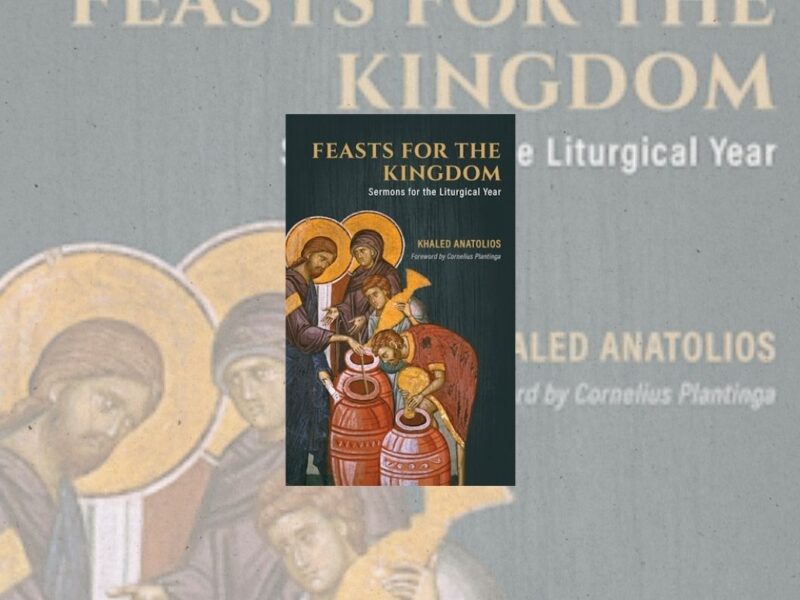Anglican Dogmatics: Francis J. Hall’s Dogmatic Theology, Abridged in Two Volumes. Edited and annotated by John A. Porter. Nashotah, WI: Nashotah House Press, 2021. 684 pp (Vol. 1); 710 pp (Vol. 2). $24.95 per volume (cloth); $19.74 per volume (paper).
Writing as a priest in the Church of England, I am aware of the intense need in our part of the Anglican Communion for spiritual and theological renewal. We are awash in a sea of relativism and compromise. There is no publicly defended consensus on the question of doctrine and its sources of authority. It often seems as though all the people are doing what is right in their own eyes and not in the sight of God (Judges 21:25). It is obvious how this plays out in liberal circles, in which experience and reason (that is, reason divorced from revelation and not in service to it) is taken to be the highest source of authority. In evangelical circles, an insistence on the literal truth of Scripture interpreted in a strictly Reformed continental key is required. In the Anglo-Catholic world there has been a wide-scale abandonment of the theological and ecclesiological beliefs of the Tractarians and their successors, and this part of the Church is now characterized by a deferential attitude to Rome. This is an inconsistent position, however, because a truly deferential attitude would consist of accepting in full the authority of the Roman Magisterium, including its teaching that Anglican orders are invalid. Of course, many priests and bishops do eventually accept this and take the option of “swimming the Tiber,” causing great division and pain to colleagues and parishioners left behind. And this is perhaps where this rambling introduction bites because matters of authority in doctrine affect ultimately the people whom we are called to pastor and teach. If priests do not know what their sources of authority are and how they are to discern truth from error, goodness from lies, then what hope have their faithful parishioners?
This is why it is to be welcomed that John A. Porter, with the help of Fr. Ben Jefferies at Nashotah House Press, has brought back into print, in an abridged and tidied version, Francis J. Hall’s Dogmatic Theology. Once a ten-volume work, published roughly a hundred years ago, Hall’s now largely forgotten book had been described as an Anglican Summa Theologiae because of its length and thoroughness. Porter has edited this work in an intelligent way, preserving the most essential elements and indeed its sense of copiousness, presenting it in a helpful two-volume format. The books are still extremely large, of course, but they are far less cumbersome than the original.
But the most important aspect of this work is that, like the smaller and less ambitious though roughly contemporary Outlines of Christian Dogma by Darwell Stone, it provides a comprehensive treatment of doctrine using a genuinely Anglican and catholic epistemological approach. That approach is summarized on the first page of this work:
[…] in undertaking a treatise of Dogmatic Theology, the writer feels under solemn obligation to conform his expositions, on the one hand, to that faith which was “once-for-all delivered to the saints” (Jude 3) in primitive days and has been held by all Catholic Churches from the beginning, and by Catholic theologians of every age and race. On the other hand, he feels bound to show due regard for the peculiar conditions of his own portion of the Catholic Church, and to adjust his language to the needs of his own age and race.[1]
Referring to the same ecumenical consensus, John Porter, in his Prolegomena, alludes to a remark of Archbishop Geoffrey Fisher (1887‒1972), “We have no doctrine of our own – we only possess the Catholic doctrine of the Catholic Church.” What is this doctrine? That which existed prior to the great schism of the eleventh century. Until that point, the Catholic Church had a unified orthodoxy which the Church of England sought to return to in its break from Rome.
Here, to my mind, is the key to a renewal of doctrinal clarity in the Church of England and in the Anglican Communion more generally: not a blind and unfaithful submission to the perversions and sinful inclinations of our present cultural moment in the West, nor a naïve and divisive insistence on a particular individualistic reading of Scripture, but a return to the orthodox doctrine of the faith, delivered once and for all to the saints and preserved, transmitted and elucidated in the teaching of the Church. Hall’s work shows us that, in its essentials, that teaching is one and it can be relied upon as a faithful guide to doctrine and practice.
In his foreword, The Rev’d. Dr. Thomas L. Holtzen says that this work “will prove to be an important reference on Anglican doctrine for the busy parish priest,” and I can only concur with this. I have relied on this new edition of Hall at various points for a catechetical course that I ran this past Lent. To give an example of its use, the chapter on The Passion & Exaltation of Christ begins with an overview of the Biblical development of this subject, starting from the problem of sin and the need for justice, moving on to an overview of the Old and New Testament, including a section of the teachings of Christ and the Apostolic writers. All of this is meticulously referenced so that further study is facilitated. The chapter moves on to a discussion of the theories of the atonement and their relationship to Catholic doctrine moving into Patristic theories, theories emerging from the Reformation and on into what was contemporary for Hall. Many of the latter are still highly relevant today, such as the view that the passion of Christ merely serves as a moral exemplar and has no objective and cosmic salvific significance for humanity. But, of course, when a book treats issues that were contemporary for the writer at the time, certain aspects of it will be less relevant.
In summary, we should rejoice at the republication of books like Francis J. Hall’s Dogmatic Theology and utilize them extensively in our everyday ministry. We should celebrate and promote the consistent and coherent appeal to the Great Tradition as a guide to doctrine and practice. But we must also ask ourselves where the substantive works of dogmatic Anglican theology are going to come from in our own day. Nashotah House Press are doing a fine job of putting these classic and valuable works back into print and they, along with John A. Porter, should be thanked for doing so.
Notes
- Hall, Anglican Dogmatics, Vol. I, pp. 3‒4 ↑



